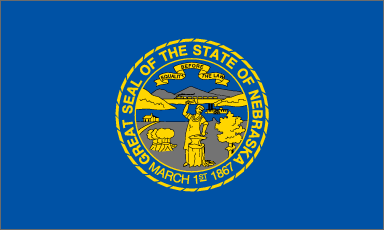On August 28, Nebraska Secretary of State Bob Evnen (R) announced that the Nebraska Medical Marijuana Initiative had qualified for the ballot despite objections filed with the secretary of state’s office regarding the ballot language.
Secretary Evnen received the objections on August 26 from attorney Mark Fahleson representing several Nebraskans. The objections argued that the ballot language violated the state’s single-subject rule that requires ballot initiatives to address a single issue or subject. Fahleson argued that the right to use marijuana to treat serious medical conditions is not necessarily connected to the right of providers to produce marijuana. In his letter determining the legal sufficiency of the initiative, Secretary Evnen responded to this argument saying, “The production and sale of medical cannabis has a natural and necessary connection to legalization of medical cannabis for individual use, which is the primary purpose of the Amendment.”
Fahleson also argued that the initiative’s provision that allows individuals to personally grow marijuana violates the medicinal purposes of the initiative. Secretary Evnen responded that another provision in the amendment closes this loophole because it authorizes the state to establish laws and rules to regulate marijuana.
Fahleson also objected to the amendment’s use of the phrase “serious medical condition” because it was not defined. Secretary Evnen argued that “placing the determination in the hands of medical professionals is sufficiently clear.”
The amendment, sponsored by Nebraskans for Medical Marijuana, would allow adults, with the recommendation of a licensed physician or nurse practitioner, to use, possess, purchase, and produce marijuana to alleviate a serious medical condition. The initiative would also allow children (under 18 years of age), with the recommendation of a licensed physician or nurse practitioner and permission of a parent or legal guardian who is responsible for their healthcare decisions, to use marijuana to alleviate a serious medical condition. Parents of children who use medical marijuana would be allowed to possess, purchase, and produce marijuana to alleviate their child’s medical condition.
State Senators Adam Morfeld (D-46) and Anna Wishart (D-27) are the campaign’s co-chairs. After a two-month suspension of their signature drive due to the coronavirus pandemic, the campaign reported submitting 182,000 unverified signatures to the secretary of state on July 2. In explaining why he’s co-chairing the initiative, Sen. Morfeld said, “We are quickly being surrounded by states that have sensible laws on medical marijuana, and we do not. A lot of Nebraskans are looking to other states—to Utah and Missouri—and saying, ‘Wow, these are also conservative states and they have much more reasonable policies about this than we do.’”
In Nebraska, the number of signatures required to qualify an initiated constitutional amendment for the ballot is equal to 10% of registered voters as of the deadline for filing signatures. According to the July 2020 voter registration report, there were a total of 1,222,741 registered voters in Nebraska. This means that a total of 122,274 valid signatures were required to qualify this initiative for the ballot. Nebraska law also features a distribution requirement mandating that petitions contain signatures from 5% of the registered voters in each of two-fifths (38) of Nebraska’s 93 counties. The secretary of state verified that 135,055 signatures were valid and that 48 out of 93 counties had at least 5% of registered voters sign the petition. The signature validity rate for the petition was approximately 74.2%.
There are two committees registered with the state in support of the initiative—Nebraska Families for Medical Cannabis and Nebraskans for Medical Marijuana. According to the latest campaign finance reports, Nebraska Families for Medical Cannabis raised a total of $14,609.38 in contributions, and the Nebraskans for Medical Marijuana raised a total of $1.7 million. Ballotpedia has not identified any committees registered in opposition to the initiative. The next campaign finance reports are due October 5, 2020.
As of August 2020, 33 states and Washington, D.C., had passed laws legalizing or decriminalizing medical marijuana. Additionally, 15 states had legalized the use of cannabis oil, or cannabidiol (CBD)—one of the non-psychoactive ingredients found in marijuana—for medical purposes.
On November 3, Nebraska voters will also decide on an initiative that would limit interest rates that payday lenders charge to 36 percent per year, a constitutional amendment that would remove language allowing slavery or involuntary servitude as criminal punishments, and a constitutional amendment that would increase the repayment period for tax increment financing from 15 to 20 years for extreme blight.
Between 1996 and 2018, an average of six ballot measures appeared on the ballot. Voters approved 53% of the 73 ballot measures that appeared on ballots between those years.


